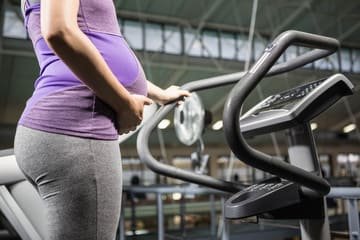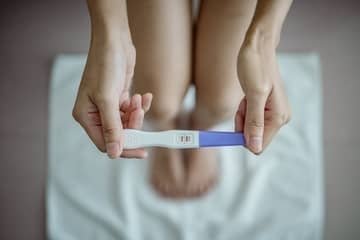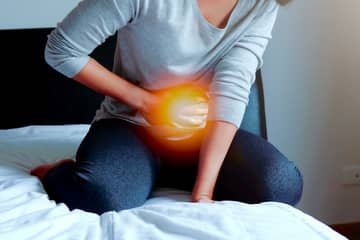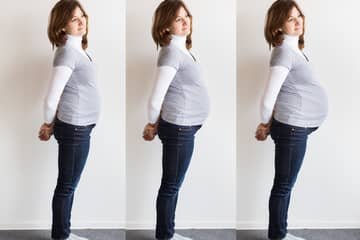
Menstrual pain in pregnancy. What does it mean?
"Menstrual pains" appear primarily in the 1st trimester and are often associated with pregnancy symptoms. Cramps in the lower abdomen, mood swings, fatigue and irritability, bloating and flatulence, muscle and headache pain, breast tenderness, sleep disorders or anger are premenstrual symptoms that are often associated with the first months of pregnancy. Therefore, a woman may not always recognize whether it is really a harbinger of menstruation, or whether it is a sign of pregnancy.
Unpleasant pains in the lower abdomen in the first trimester are usually natural, but sometimes they can signal a more serious health problem. At the beginning of pregnancy, the uterus grows and expands (growth lasts the entire pregnancy), creating space for the baby's growth. It can be manifested by mild cramps and pain in the lower abdomen, those pains can be compared to menstrual cramps. If the pain is tolerable, manifests itself only occasionally and has varying intensity, it is a physiological change associated with pregnancy. The cause of pain can also be slight stitches of the uterus. In the last weeks before childbirth, menstrual pain is reminiscent of contractions. As for the messengers, Braxton-Hicks contractions are not regular and their frequency and intensity do not increase. The actual contractions intensify and their frequency decreases.
Pain in the lower abdomen and lower back reminiscent of premenstrual syndrome (PMS) can be a sign of yeast and urinary infection, indigestion, constipation and bloating. Intense pain in the lower abdomen can signal an incipient miscarriage. Then the pain is often associated with nausea and bleeding. Pain in the lower abdomen reminiscent of menstrual cramps associated with light bleeding (contains old blood) may indicate an ectopic pregnancy. If cramps in the lower abdomen and spotting appear in the 3rd trimester before the 37th week of pregnancy, it is most likely a premature birth.
Pain in the lower abdomen is completely natural in the first trimester. However, if you feel that something is wrong, do not hesitate to see a doctor.
Expectant mothers encountered menstrual pain at the beginning of pregnancy and consider it one of the symptoms of pregnancy. It was about stronger pains in the lower abdomen at the time when menstruation was about to occur, breast pain and frequent trips to the toilet. The stretching and growth of the uterus resemble menstrual cramps. Some mothers used magnesium for these pains.
Pridať komentár






